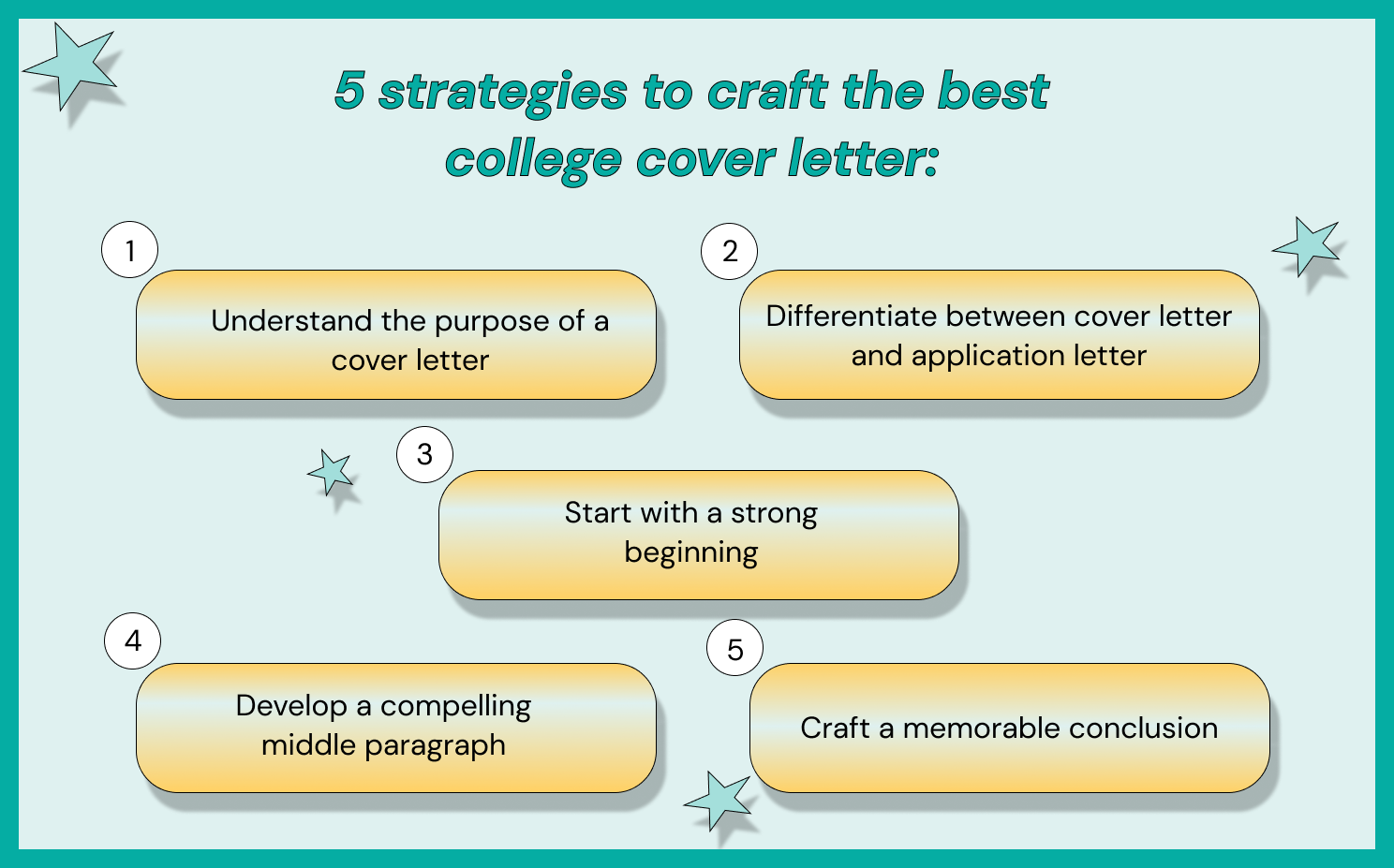Hello, everyone! I’m Nicholas, and I’m excited to share valuable tips to help you craft the perfect college cover letter. Many students feel overwhelmed by the process, often postponing it until the last minute. However, a well-structured and compelling cover letter can make a significant impact on your university application, setting you apart from other candidates.
In this guide, I’ll walk you through the essential steps, debunk common misconceptions, and provide practical strategies to help you create a letter that captures attention. Whether you’re applying to a prestigious Ivy League school or a specialized arts program, your cover letter should reflect your unique story and aspirations. Take notes, absorb these insights, and prepare to make a lasting impression on the admissions committee!
Understanding the Purpose of a College Cover Letter
A college cover letter is more than just a formality; it serves as a personal introduction to the admissions committee. Unlike a resume, which lists accomplishments in bullet points, a cover letter tells your story. It provides context to your academic journey, showcases your enthusiasm for learning, and highlights what makes you a perfect fit for the institution.
Think of it as your opportunity to establish a connection with the reader. Admissions officers go through thousands of applications, and a well-crafted cover letter can ensure yours stands out. This is your chance to go beyond grades and test scores to present a holistic picture of who you are and what you bring to the table. If you need help creating a compelling and polished application, a letter writing service can offer professional guidance tailored to your goals.
Cover Letter vs. Admission Letter: Understanding the Difference
One common confusion among students is the difference between a cover letter and an admission letter. Though both are part of the application process, they serve different functions.
A cover letter is a concise, one-page document that briefly outlines your interest in the program, your qualifications, and why you are a suitable candidate. It is meant to complement the rest of your application and provide a quick insight into your personality and goals.
On the other hand, an admission letter (or personal statement) is more detailed and narrative-driven. It delves into your background, experiences, and personal motivations at length. Unlike a cover letter, an admission letter can be several pages long, providing a more comprehensive view of your journey and aspirations.
For now, let’s focus on crafting a compelling cover letter that will make the right impression.
How to Write a Strong College Cover Letter
Step 1: Structuring Your Letter
Before diving into writing, it’s important to understand the basic structure of a cover letter. Every effective cover letter should have the following elements:
Introduction
Start with a polite and engaging introduction that states the purpose of your letter. Mention the program and university you are applying to and briefly explain why you are excited about the opportunity.
Body Paragraph(s)
This section should highlight your qualifications, experiences, and skills. Instead of simply listing achievements, provide context and explain how they have prepared you for the academic journey ahead. Use specific examples to illustrate your passion and dedication.
Conclusion
Wrap up your letter with a confident closing statement. Express gratitude for the reader’s time, reinforce your enthusiasm for the program, and indicate your willingness to provide additional information or attend an interview.
Step 2: Writing an Engaging Introduction
The opening lines of your cover letter should be compelling enough to grab the reader’s attention. Avoid generic statements and instead, personalize your introduction by mentioning what draws you to the specific university and program.
Example:
I am thrilled to submit my application for the Film Studies program at New York University. The university’s commitment to artistic innovation, its diverse community, and its outstanding faculty make it the ideal place for me to develop my skills as a filmmaker. With a deep passion for storytelling and visual expression, I am eager to contribute to and learn from NYU’s dynamic environment.
Step 3: Developing a Strong Body Paragraph
Your body paragraph(s) should provide insight into your background and experiences that align with your chosen field of study. Focus on key accomplishments, extracurricular activities, and personal experiences that illustrate your enthusiasm and readiness for the program.

Example:
My passion for contemporary art and mixed media has led me to participate in exhibitions such as [Exhibition Title], where I explored themes of environmental consciousness and social justice. In recognition of my work, I was awarded [Award Title] in 2018 and 2020. Additionally, I have used digital platforms to share my artistic creations, engaging with a broader audience through social media. These experiences have shaped my creative vision, and I am eager to further refine my skills at NYU.
Step 4: Crafting a Memorable Conclusion
A strong conclusion leaves a lasting impression. Restate your enthusiasm for the program, express gratitude, and invite the admissions committee to contact you if they require further information.
Example:
I appreciate your time and consideration of my application. Enclosed are the necessary documents to support my candidacy. I am eager to bring my creativity, dedication, and collaborative spirit to NYU’s vibrant student community. If there are any further questions, I would be happy to provide additional information or discuss my application in an interview.
Frequently Asked Questions
1. How long should a college cover letter be?
A college cover letter should be one page in length. Keep it concise and to the point while ensuring you include relevant details that highlight your qualifications and motivations.
2. Should I use the same cover letter for multiple universities?
No. Each cover letter should be tailored to the specific university and program you are applying for. Highlight unique aspects of each institution that resonate with you to demonstrate genuine interest.
3. What should I avoid in a college cover letter?
Avoid generic statements, excessive repetition, and overly formal language. Additionally, do not simply rehash information from your resume—use the letter to provide context and personality.
4. How do I make my cover letter stand out?
To make your cover letter stand out, personalize it by including specific details about the university and program. Use a strong narrative to showcase your unique experiences and aspirations.
5. Do I need to include references in my cover letter?
No, references are not necessary in a college cover letter. Instead, focus on presenting your own qualifications, achievements, and reasons for applying.
Start Writing Your Best Cover Letter Today
Now that you have a clear roadmap, start drafting your cover letter with confidence. Writing takes practice, so don’t be discouraged if your first attempt isn’t perfect. Seek feedback, refine your message, and revise until you have a compelling letter that represents the best version of yourself.
Your cover letter is more than just an application requirement—it’s your opportunity to make a memorable impression. Approach the process with enthusiasm and dedication, and you’ll create a letter that truly reflects your passion and potential.





